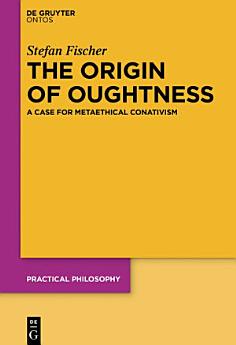The Origin of Oughtness: A Case for Metaethical Conativism
About this ebook
I start with the introduction of a grounding framework for thinking about oughtness that allows a lucid presentation of the views on the market. It soon becomes clear that one necessary part of any plausible assessment of accounts of oughtness is a discussion of their adequacy conditions. I continue with a detailed evaluation of four different accounts, as presented by Halbig (2007), Schroeder (2007), Stemmer (2006), and Scanlon (2014). My main result is that desire-based or Humean theories of oughtness are more plausible because desire-independent accounts fail to explain something crucial: the for-me character of oughtness. Based on the insights gathered thus far, I then develop a new Humean theory – metaethical conativism – and defend it against some historically influential objections.








